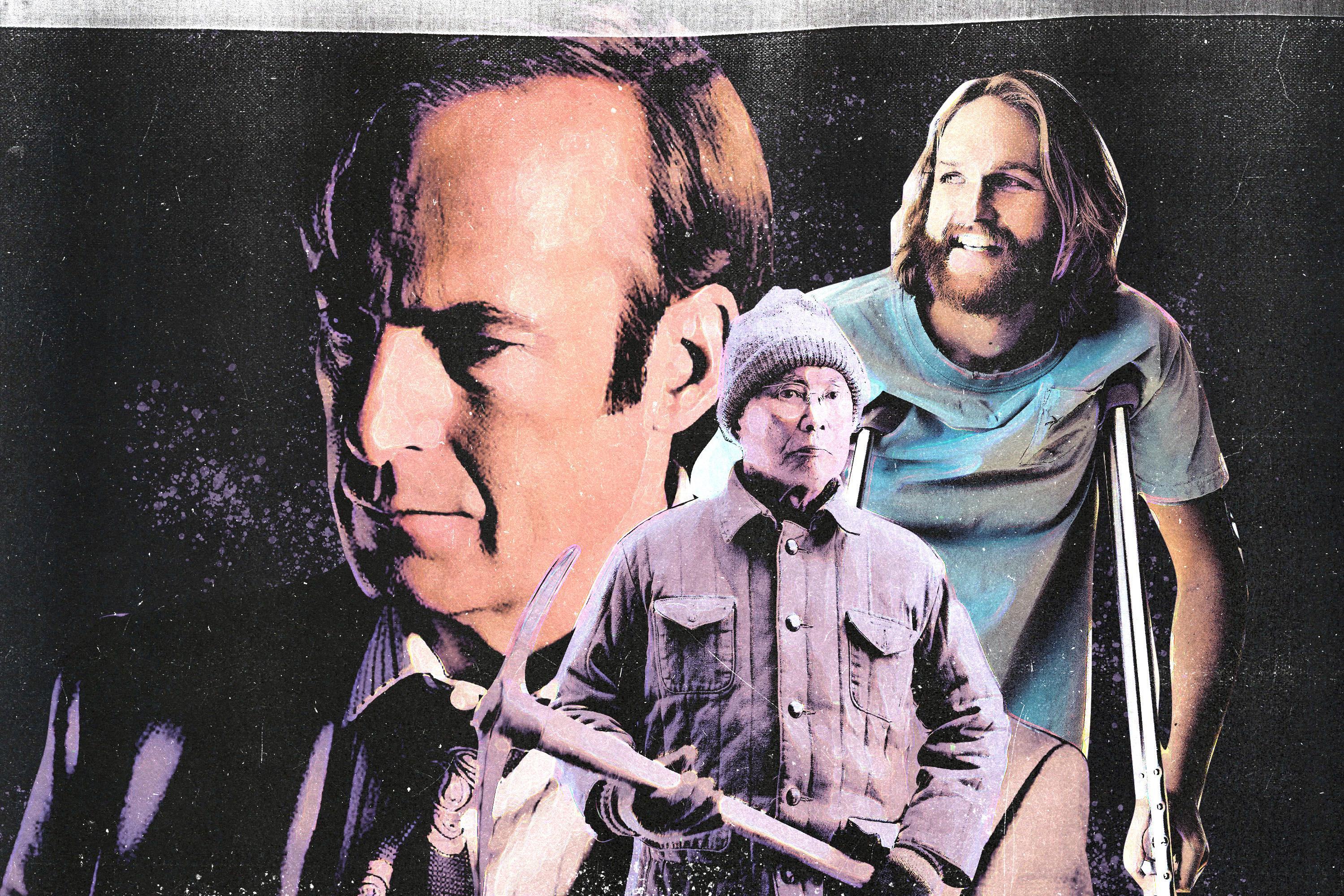
When the 2019 Emmy nominations were announced, HBO had more than any other network. Such a designation isn’t surprising: As a brand, HBO has long been synonymous with prestige, even if its programming hasn’t always been formally recognized by the TV Academy (hello, The Wire!). But as Netflix—which garnered more nominations than HBO for the first time in history last year—and other streamers continue churning out a considerable amount of programming worthy of Emmys consideration, HBO (under new ownership at AT&T) will produce more content to compete with them. For better or worse, HBO’s main competitor is now Netflix, rather than other networks largely defined by so-called “prestige TV” like FX, itself responsible for 32 Emmy nominations this year, but also AMC, which received 11—marking an improvement over the single nomination the network received in 2018. To quote a character from the network’s bygone era: not great, Bob!
Of course, Emmys recognition isn’t the be-all, end-all for any network, and often great series never get their due on TV’s biggest stage. (Again, somehow, The Wire got two Emmys nominations for its entire run.) But a network once defined by two genuine hallmarks of television’s Golden Age—Mad Men and Breaking Bad—has, at least by this benchmark, fallen on harder times.
In lieu of prestige, one can still point to ratings and The Walking Dead, which is the kind of sustained hit most networks would dream to have on their docket. But the zombie drama has faltered in recent years: the ninth season was a marked improvement only because the show’s standards have gotten so low. The series is still garnering solid ratings, but has precipitously bled viewers since its ill-fated Negan cliffhanger in Season 7—a low point representative of the show’s reliance on shock-and-awe tactics instead of rich character work. (I swear there were times when The Walking Dead was actually kinda lit, but it was during the Obama administration.)
Even though Carl (dead) and Rick Grimes (mysteriously helicoptered away; not a joke) have both left the series—and Danai Gurira’s fan-favorite Michonne will follow suit in the 10th season—the program does not seem to be nearing an end. Even more confounding is AMC’s concerted effort to triple down on all things Walking Dead. A second spinoff series is on the way—the first spinoff, Fear the Walking Dead, is midway through its fifth season—and a film trilogy focused on Rick that will reportedly include theatrical runs. AMC is trying to revive a dying brand; it would be akin to HBO signing off on multiple Thrones spinoffs after a serious drop in viewership.
But for as maddening as the Walking Dead–verse has become, it’s overshadowed a slate of programming that feels much more promising and representative of AMC’s glory days. This is not to say the network’s got a Wire-esque hit on its hands; rather, just that there’s some good-to-great programming that appears to have largely fallen under the radar in this evolving era of Peak TV.
Better Call Saul, the Breaking Bad spinoff/prequel, is a sure bet to get a little bit of Emmys love—as evinced by the nine nominations it received this year—but it doesn’t yield the same type of headline-grabbing thrills as Walter White’s growing drug empire. While a returning Gus Fring keeps a kingpin-adjacent thread intact, Better Call Saul is largely a ruminative character study of Jimmy McGill and the slippery moral slope transforming him into Saul Goodman. What the series lacks in literal explosive moments it makes up for in nailing the minutiae of its world: Jimmy’s petty and increasingly elaborate scams, what makes each multifaceted character tick, or inspecting a damn car. Better Call Saul doesn’t call attention to itself the same way as its predecessor, but in being a completely different series about a man slowly exposing his toxic and amoral nature, it’s become just as worthy of praise.
Meanwhile, with a slightly different through line, the first season of The Terror—a supernatural spin on the story of two real-life British ships on an expedition that went missing in the Arctic during the 1800s—showed what happened when naval officers are stripped of every impulse but survival. It was bleak, beautiful television, and more importantly, popular enough to merit a second season. As a result, The Terror has become a straight-up anthology series, intended to explore how supernatural and human evil manifests in the worst of times through the lens of tweaked historical events. Beginning on Monday night, The Terror: Infamy will delve into the horrors of a Japanese internment camp, and the mysterious Yurei (a type of Japanese spirit) that begins terrorizing its inhabitants. Infamy isn’t as compelling as its forebear—the characters aren’t as developed, and a romantic subplot crucial to the narrative feels unconvincing. But as another brand AMC can wield outside of the Walking Dead–verse, The Terror is teeming with a lot more potential if it warrants additional seasons.
And despite not being as popular as its preeminent zombie franchise, Better Call Saul and The Terror still have their respective fan bases, which isn’t so much the case with Lodge 49. A surrealist fable set in Long Beach—its second season also premieres on Monday night—Lodge 49 is the kind of unheralded triumph that seems to exist only because it’s got a lot of goodwill from critics amid microscopic ratings. (In that regard, it’s pretty much AMC’s successor to Halt and Catch Fire.)
The series is difficult to describe—its own creators admit they’re just trying to sell a “vibe” rather than a narrative—but in focusing on a meandering, down-on-his-luck surfer named Dud (played with an effortless charm by Wyatt Russell) as he joins a fraternal lodge trying to get his life back on track, Lodge 49 becomes a surprisingly prescient show for our times, and even more shockingly, a great companion show to HBO’s Succession. While Succession highlights the blithe indifference and misery inherent to the ultra-wealthy, Lodge 49 evokes a specific (and much more relatable) mood tied to the fallout of late capitalism and post-2000s recession ennui. As the show’s characters try to find meaning in scholarly works from alchemists of fraternal orders past and decipher clues to discover the “one true lodge,” it’s clear they’re searching for a deeper purpose to life—one that, if nothing else, can distract them from the socioeconomic anxiety posed by mass layoffs, skyrocketing rent, financial debt, and medical expenses. Lodge 49 is also, to the best of my knowledge, the only show on TV where my father Paul Giamatti shows up and jumps out of a plane—and that’s within the first two minutes of the second season.
The Walking Dead–verse notwithstanding, AMC’s current slate—which also includes the predictably unpredictable Preacher and the Pierce Brosnan–starring Western The Son—is better than the network’s lack of recent Emmys attention would indicate. Thankfully, it hasn’t gone entirely unnoticed. Paste’s former TV critic Matt Brennan—citing Better Call Saul, The Terror, Lodge 49, as well as the gripping miniseries The Little Drummer Girl and the now-canceled Dietland—hailed AMC as the best network of 2018, and many aforementioned shows did land on year-end best-of lists, including our own at The Ringer.
In an era defined by streamers throwing a ton of stuff at the wall to see what sticks—Netflix puts a mind-melting amount of money behind original content, but now seems less reluctant to pull the plug on shows that don’t hit vaguely defined metrics—AMC’s place in the current TV landscape looks more and more anachronistic. And with HBO expected to ramp up its content to compete with streamers like Netflix, and FX now under the Disney umbrella, AMC’s standing in Peak TV feels comparably plucky. But even if it’s not currently on the Emmys’ radar, once you get past a horde of zombies there’s a lot of wonderful things to be found in the network’s surreal lodges, historical horrors, and shady lawyers.

